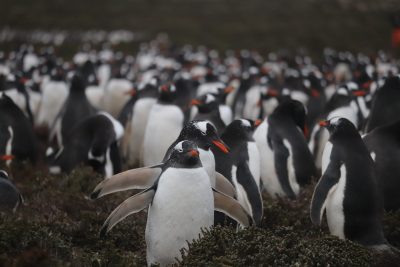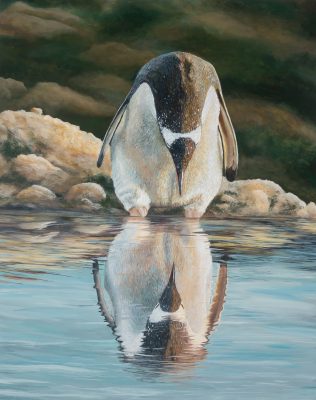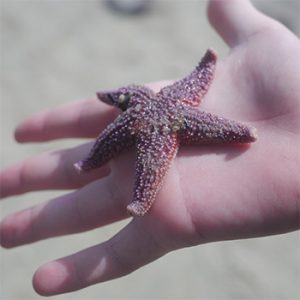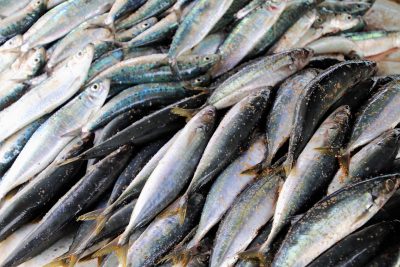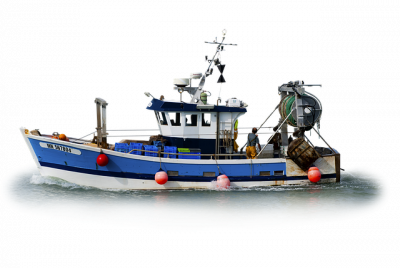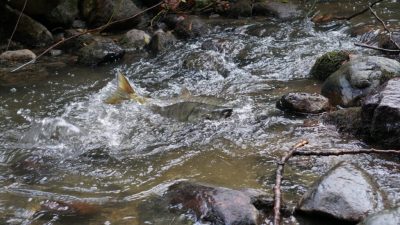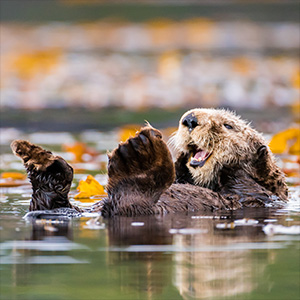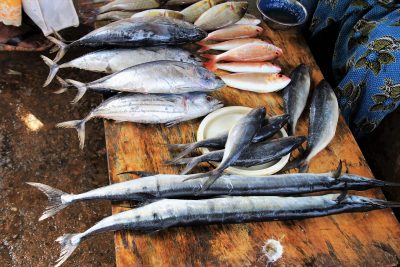All-woman crew of marine scientists rowing 5,000 km non-stop for ocean conservation
The all-woman ‘Salty Science’ crew is taking part in the World’s Toughest Row – Atlantic 2023, where teams row without stopping and without support from San Sebastian de La Gomera in The Canary Islands to Nelson’s Dockyard in Antigua.
Do a deep dive into… The Falkland Gentoo Penguins!
Discover the Falkland gentoo penguin and learn from experts at the Institute for the Oceans and Fisheries!
Diving, snacking, laying eggs! What do different hemoglobin levels mean for gentoo penguins?
Gentoo penguins have to food forage before laying eggs. The amount of hemoglobin in their blood may increase diving capacities. Increased diving may mean more tiny penguin chicks.
IOF students visit Chilliwack
Students from the IOF’s FISH 520 course took a fieldtrip to Chilliwack with Dr. Jordan Rosenfeld, Honorary Professor, Applied Freshwater Fisheries Research Unit (AFERU)
Students visit Stanley Park for an intertidal tour
They saw sea stars down by the seashore…
Climate change will have an adverse impact on trophic amplification in marine food webs
Climate-driven changes in ocean environmental conditions — ocean warming, deoxygenation and acidification — are projected to affect the physiological functions of marine organisms, their geographic distributions, biological life cycles and total biomass.
New FCRR: Understanding the fishers to change the fishery in the bottom trawl industry in India
The report unravels the drivers and motivations that entice fishers and the fishery to start, engage in, and stop bottom trawling in India. Understanding the nuances within communities rather than viewing them as one entity is paramount for designing equitable policies. Moreover, the study highlights a pressing reality: fishers do not always want to fish and are sometimes forced to remain in the bottom trawl industry. Recognizing and addressing these insights are paramount in effectively constraining bottom trawling.
Salmon bones confirm sustainable chum fishery for 2,500 years under Tsleil-Waututh Nation
New research confirms that Tsleil-Waututh Nation has consistently and sustainably fished for chum salmon for 1,200 years longer than the archaeological record had previously demonstrated
Hungry, hungry otters! Looking at captive sea otters to understand their wild counterparts
These furry marine mammals seem to have bottomless stomachs — what does that mean for the habitats and species around them?
European fisheries under threat, climate change may impact on future catch
Without rapid adaptation or aggressive mitigation tactics, climate change is projected to induce profound negative consequences on future fisheries production in Europe.

